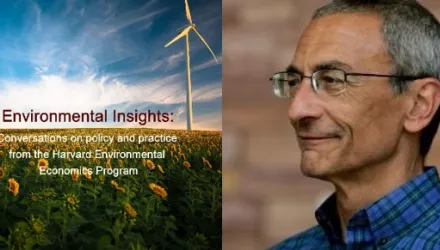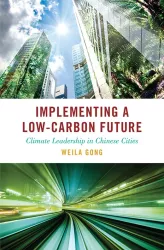BCSIA: 1981-1982 ANNUAL REPORT
3. Research and Publications
RESEARCH AND PUBLICATIONS
The Center continued to focus research on arms control and disarmament with particular emphasis on controlling nuclear weapons. Research also addressed the nuclear energy controversy in industrialized countries, decision-making in nuclear waste management issues, and the prospect of regime changes in developing countries.
Research Interests
Jeffrey Boutwell, Graduate Student Associate, CSIA. West German politics of nuclear weapons and the growth of the West German peace movement. TNF arms control in conjunction with the CSIA research project-on theater nuclear weapons and Soviet military policy.
Harvey Brooks, Benjamin Peirce Professor of Technology and Public Policy. Theory and practice of formulation of research priorities in relation to social and national goals, energy policy, industrial policy, technology and the quality of working life, institutional aspects of technological innovation, technology assessment in theory and practice.
Albert Carnesale, Senior Faculty Research Associate, CSIA; Professor of Public Policy, and Academic Dean, Kennedy School. Issues associated with nuclear weapons and strategies for their use and non-use. Focus this year was on ballistic missile defense, ICBM vulnerability, and verification of arms control agreements. Also participated in a study of governance of nuclear power for the President''s Nuclear Safety Oversight Committee. Led the CSIA research working group on ballistic missile defense.
E. William Colglazier, Research Fellow, CSIA; and Associate Director, Aspen Program in Science, Technology, and Humanism. Energy and environmental policy; governance issues of nuclear waste management and nuclear power; policies for oil importing countries to cope with the threat of oil supply disruptions; the role of science & technology in development of the third world; the connection between social and technological innovation and their impact on economic growth; and the role of the media and public participation in decision-making on controversial issues of science and technology.
David Deese, Adjunct Research Fellow, CSIA; and Assistant Professor of Political Science, Boston College. The role of arms control in grand strategy; economics and national security; and international security implications of world energy markets.
Paul Doty, Director, CSIA; and Mallinckrodt Professor of Biochemistry. The current status of arms control in U.S.-USSR relations; planning and strategy for START, as well as arms control of intermediate-range nuclear weapons in European theater; international scientific cooperation; nuclear power policies.
William Durch, Research Fellow and Project Administrator, CSIA. Strategic arms limitation; ballistic missile defense, particularly problems related to renegotiation of the ABM Treaty; and militarization of space.
James Kendrick Feldman, Graduate Student Associate, CSIA. Research and analysis onthe U.S. strategic aircraft force.
Charles Glaser, Graduate Student Associate, CSIA. Foreign policy with particular attention to national security and nuclear weapons policy; strategic theory and ballistic missile defense issues; strategic defenses and defense-dominance.
Fen Hampson, Graduate Student Associate, CSIA. Energy and security; political instability; and the political economy of oil and gas policies in Canada and Mexico.
Mahnaz Zehra Ispahani, Graduate Student Associate, CSIA. Historical geography, geopolitics, the interaction between defense and development needs, and transport, communications, and logistics facilities in Southwest and Central Asia; issues of political development, decay, and instability.
Lennart B. Johansson, Visiting Scholar, CSIA. Influence of energy imports on national security— the Swedish case; the political dimension of international business; political instability in the Third World and C3 I in government and in business.
Morris McCain, Research Fellow, CSIA. Competitors of the Soviet military— what determines allocations between military and other purposes in the Soviet Union, how effective are the resource demands made by sectors of the Soviet economy other than the military, how does the CPSU leadership currently view allocation tradeoffs between the military and its competition. Soviet attitudes toward BMD.
Stephen M. Meyer, Adjunct Research Fellow, CSIA; Associate Professor of Political Science, MIT; and Research Associate, Center for International Studies, MIT. Soviet military studies with specific emphasis on weapons acquisition and force planning; nuclear proliferation; quantitative methods and computer applications in security studies.
Steven E. Miller, Assistant Director, CSIA; and Managing Editor, International Security. European security, with an emphasis on NATO''s Northern Flank; strategic nuclear weapons policy and strategic arms control; issues relating to theater nuclear forces in Europe; conventional arms transfers; U.S.-Soviet relations; and the connection between theory and policy in international affairs.
Mike Mochizuki, Research Fellow, CSIA; and Post-doctoral Fellow, CFIA. Japanese security policy, with special attention to emerging alternatives to the Yoshida Doctrine and to Japan''s defense industrial base; small and medium enterprise policy in Japan; analysis of public policy developments to aid small businesses during times of severe economic adjustment.
Michael Nacht, Associate Director, CSIA; and Associate Professor of Public Policy. Nuclear weapons and U.S.-Soviet relations; the problem of regional security; political instability in developing countries; management issues in the making of national security policy; and U.S.-Japanese relations.
Joseph Nye, Faculty Research Associate, CSIA; Professor of Government; and Professor of Public Policy. Energy security and Persian Gulf oil; the management of U.S.-Soviet relations and the role of nuclear weapons in that relationship.
Nil Ozergene, Graduate Student Associate, CSIA. East-West technology transfer.
Reinhardt Rummel, Adjunct Research Fellow, CSIA; and Visiting Scholar, CFIA. U.S. foreign policy; Atlantic regions and the Middle East; energy and security.
Michiko Suzuki, Graduate Student Associate, CSIA. U.S.-Japan relations.
Gregory Treverton, Adjunct Research Fellow, CSIA. Problems of coping with the politics of the U.S.-European relationship across a range of issues from security to economics; intermediate-range nuclear force negotiations; European and Japanese interests in multi-lateral arms control.
Stephen Walt, Graduate Student Associate, CSIA. Alliance formation in the Middle East; political instability; nuclear strategy.
Dean Wilkening, Research Fellow, CSIA. Ballistic missile defense; defense-dominated strategies, e.g., space-based laser weapons; military uses for outer space, satellites, and ASAT.
Dorothy Zinberg, Director of Seminars and Special Projects, CSIA; and Lecturer, KSG. Social dimensions of the energy transition; the role of experts (scientists, science policy, and defense professionals) in controversial issues with a significant technological component; growth of the peace movement in Great Britain and Western Europe; changing patterns of international science research-related travel; science and public policy programs.
Publications
Boutwell, Jeffrey. "Soviet Policy Towards Western Europe. In IISS Strategic Survey,1981-82.
______. "Western Security— Policy and Issues." Rapporteur''s report of an Aspen Institute Berlin Conference held in June 1981.
Brooks, Harvey. "Can Technology Assure Unending Material Progress?" In Progress and Its Discontents, edited by Gabriel Almond, Marvin Chodorow, and Roy Harvey Pearce, American Academy of Arts and Sciences. Berkeley: University of California Press, 1982.
______. "Perspectives on the Energy Problem." Proceedings of the American Philosophical Society, Symposium on Energy Vol. 125, No. 4 (August 1981).
______. "Science Indicators and Science Priorities." Science, Technology, and Human Values, Vol. 7, No. 38 (Winter 1982), pp. 11-14.
______. Part III, science, Technology, and Soviets in the l980s. In Science and Technology Policy for the 1980''s, OECD 1981.
______. "Social & Technical Inventions: Challenges to Legal and Political Institutions." Idea, The Journal of Law and Technology, Vol. 22, No. 2 (1981).
______. "Social and Technological Innovation." In Managing Innovation: The Social Dimensions of Creativity, Invention and Technology, edited by Sven B. Lundstedt and E. William Colglazier, Jr. Elmsford, N.Y.: Pergamon Press, 1982.
______. "Stratospheric Ozone, The Scientific Community and Public Policy." In Stratospheric Ozone and Man, edited by Frank A. Bower and Richard B. Ward. Vol. II. Boca Raton, Fla.: CRC Press, Inc., 1982.
______. "Technology Related Catastrophes: Myth and Reality." In Visions of the End in Western Imagination, edited by S. Freidlander, E. Skolnikoff, G. Holton, L. Marx. New York: Holmes and Meter, forthcoming.
______. "Testimony to the Subcommittee on Science, Research and Technology, Hearings on The Human Factor in Innovation and Productivity." September 10, 1981, U.S. House of Representatives, 97th Congress, 1st Session, No. 51.
______. "The Role of Nuclear Power." In Increasing World Energy Production and Productivity, edited by Robert A. Bohm, Lillian A. Clinard, and Mary R. English. Cambridge: Ballinger Publishing Company, forthcoming.
______. "Towards an Efficient Public Technology Policy: Criteria and Evidence." In Proceedings of Symposium for Emerging Technology: Consequences for Economic Growth, Structural Change and Employment in Advanced Open Economies. Kiel: Institut fur Weltwirtschaft, forthcoming.
______, S. Lakoff, Ian Barbour, and J. Opie. Energy and American Values. New York: Praeger, forthcoming.
Carnesale, Albert and Charles Glaser. "ICBM Vulnerability: The Cures are Worse than the Disease." International Security 7 (Summer 1982), pp. 70-85.
______. "June 7 in Baghdad." The Bulletin of the Atomic Scientists, August/September 1981, pp. 11-13.
Colglazier, E. William. Edited speech in "Mass Media Coverage of Scientific and Technological Controversy," Science, Technology and Human Values.
______. "Measures of Energy Security." Concept Paper for the California EnergyCommission, International Energy Program of the M.I.T. Energy Laboratory, May 1982.
______, ed. The Politics of Nuclear Waste. Elmsford, N.Y.: Pergamon Press, 1982.
______ and Michael Rice. "Covering Complex Technological Issues: The Media, theExperts and the Public." In Uncertain Power: The Struggle for a National Energy Policy, edited by D. Zinberg. Elmsford, N.Y.: Pergamon Press, 1982.______ and S.B. Lundstedt, eds. Managing Innovation: The Social Dimensions of Creativity, Invention and Technology. Elmsford, N.Y.: Pergamon Press, 1982.
______. E.N. Krapels, B. Kates-Garnick and R. Weiner. "The Crude Oil Access Problem." Proceedings of the Harvard Energy and Security Conference, July 1982.
Deese, David. "Oil, War and Grand Strategy." Orbis, Fall 1981.
______. "Economic Diplomacy in World Politics: The Vulnerabilities of Modern Economies." In Economics and National Security. New York: Praeger, forthcoming.
______. "Western Energy and the Mobilization Dilemma." In a book on mobilization sponsored by the Fletcher School of Law and Diplomacy, forthcoming.
Doty, Paul. "Einstein and International Security." Published with Einstein and Humanism Selected Papers from the Jerusalem Einstein Centennial Symposium. Princeton: Princeton University Press, June 1982.
______. "The Doctrine of Mutual Assured Destruction: Relevance for the 1980s. In U.S. Strategic Doctrine for the 1980s, selected papers from the Conference on U.S. Strategic Doctrine for the 1980s under the auspices of the Institute for Foreign Policy Analysis, forthcoming.
______. "Factors in Development of Strategic Nuclear Policy." In The National Security Issues Symposium Proceedings, selected papers from the National Security Issues 1981 Symposium, cosponsored by the Electronic Systems Division, USAF, Hanscom Air Force Base, Mass. and The MITRE Corporation, June 1982, forthcoming.
Durch, William and Barry M. Blechman. "Bay of Pigs Plus 20. '' Washington Quarterly 4:4 (Autumn 1981), pp. 86-100.
______ and James A. Schear. "Arms Verification: How Much Is Enough?" Christian Science Monitor, September 25, 1981.
Feldman, James Kendrick. "A Guide for Strategic Aircraft Decisions." Ph.D. dissertation, Kennedy School of Government, Harvard University, 1982.
Glaser, Charles and Albert Carnesale. "ICBM Vulnerability: The Cures are Worse than the Disease." International Security 7 (Summer 1982), pp. 70-85.
Hampson, Fen. Review of Insurrection or Loyalty: The Breakdown of the Spanish American Empire by Jorge Dominguez. Harvard International Review, November 1981.
Ispahani, Mahnaz. "Why Bhutto Fell." In Political Instability, edited by Michael Nacht, forthcoming.
______. "Strategic Logistics in the PRC''s Forward Defense: Central and South Asia.
Johansson, Lennart. "Economic Consequences of Regime Change." In Political Instability, edited by Michael Nacht, forthcoming.
______. "Utlandsberoendet inom energisektorn" (Foreign dependence in the Swedish energy sector). Research Report from National Defense Research Institute in Sweden, 1982.
______. "''U 137 Calling Base'': A Study of the Soviet Submarine that ran aground in Sweden on October 27, 1981," Mimeograph, June 1982.
______. "Political Risk Assessment," Mimeograph, October 1981.
Morris McCain. "Soviet Lawyers in the Reform Debate: Cohesion and Efficacy." Soviet Studies 34:1 (January 1982), pp. 3-22.
______. Review of Soviet Influence in Eastern Europe: Political Autonomy and the Warsaw Pact by Christopher Jones. Soviet Studies 34:3 (July 1982).
______. "Soviet Jurists Divided: A Case for Corporatism in the USSR?" Comparative Politics, in press.
Miller, Steven. "Arms Control and Surprise Attack: Into the 1980s." Arms Control, September 1981, pp. 135-156.
______. "Nuclear Arms Control: The Freeze Debate Heats Up." The New Leader, March 22, 1982, pp. 3-5.
______. "Nuclear Muddlethink." The Boston Observer, May 14, 1982, pp. 5-9.
______ and Barry Blechman. "Perspectives on Strategic Forces." In Rethinking the U.S. Strategic Posture, edited by Barry Blechman. Cambridge: Ballinger, 1982.
Mochizuki, Mike and Michael Nacht. "Modes of Defense Cooperation Between the U.S. and Japan." Annual Report of the Program on U.S.-Japan Relations. Cambridge: Program on U.S.-Japan Relations, Harvard University, August 1982.
Nacht, Michael. "ABM ABCs." Foreign Policy, No. 46 (Spring 1982).
Nye, Joseph. "Energie und Sicherheit." Europa Archiv, April 1981.
______ and David Deese. "Energy and Security." Harvard Magazine, January-February 1981.
______. "The U.S. and Soviet Stakes in Nuclear Nonproliferation," PS, Vol. XV, No. 1 (Winter 1982).
______. "Maintaining the Western Alliance." Harvard International Review, Vol. IV, No. 6 (March 1982).
______. "Nuclear Weapons Proliferation: Too Late to Stop It?" Annual Editions: World Politics. Conn.: Dushkin Publishing, March 1982.
______. "Restarting Arms Control." Foreign Policy, No. 47 (Summer 1982).
______. "The Future of Strategic Arms Control." In Rethinking the U.S. Strategic Posture: A Report From the Aspen Consortium on Arms Control and Security Issues, edited by Barry Blechman. Cambridge: Ballinger, 1982.
______. "American Power and Reagan''s Policy." Orbis, Summer 1982.
______. "Maintaining a Nonproliferation Regime." International Organization, Winter 1981.
Rummel, Reinhardt. Western Europe: Collective Foreign Policy Actor. New York: Praeger, forthcoming.
______. "West European Middle East Policy." In The Middle East Since the Egyptian-Israeli Peace Treaty, edited by Robert O. Freedman, forthcoming.
Walt, Stephen. "Veteran''s Day Nuclear Weapons Teach-in." Harvard Crimson, November 14, 1981.
______. "Four Myths That Harm U.S. Foreign Policy." Christian Science Monitor, April 8, 1982.
Zinberg, Dorothy. "Public Participation in Nuclear Energy and Nuclear Waste Management Issues: U.S. and European Perspectives." In Radioactive Waste and Governance, edited by E. William Colglazier. New York: Pergamon, 1982.
______. "Delhi 1980: Report on the Global Seminar on Science and Technology." Science and Human Values, Vol. 6 (Summer 1981), pp. 56-58.
______. "Peregrinations: The International Mobility of Scientists and Engineers." Nature, Vol. 293 (October 1981), pp. 605-606.
______. "Caveat Emptor: Calculating All the Costs of Energy." Radcliffe Quarterly, Vol. 67 (December 1981), pp. 1-4.______.
"The Public and Nuclear Waste Management Policy: A Struggle for Participation." In Nuclear Power and the Public: Are There Critical Masses?, edited by William Frendenberg. Boulder, Colo.: Westview Press, forthcoming.
______, ed. Uncertain Power: The Struggle For A National Energy Policy. New York: Pergamon, forthcoming.
INTERNATIONAL SECURITY
International Security, the quarterly journal edited by the Center for Science and International Affairs and published by the MIT Press, completed its sixth year of publication in the spring of 1982. The journal''s articles reflect a broad definition of international security, embracing a wide range of foreign policy and defense issues, with particular emphasis on the use, the threat, and the control of force. It seeks to present analysis and opinion representing diverse perspectives and approaches, and thus to contribute to the debate on national security issues. During the past year, International Security published the following essays:
VOLUME 6
NUMBER 3 WINTER 1981/82
"A Smoking Radiating Ruin at the End of Two Hours": Documents
on American Plans for Nuclear War with the Soviet Union, 1954-55 David Alen Rosenberg
CRACKS IN THE SOVIET EMPIRE?
Instability and Change in Eastern Europe F. Stephen Larrabee
Energy and the Soviet Bloc Thane Gustafson
Contempt and Crisis in Poland David A. Andelman
Maneuver, Mobile Defense, and the NATO Central Front John J. Mearsheimer
The Military and Militarism in Soviet Society Dimitri K. Simes
COPING WITH NUCLEAR COMPETITION
Restructuring the SALT Dialogue Jane M.O. Sharp
An Analogy for Arms Control Ian Bellany
Managing Nuclear Multipolarity John J. Weltman
Nuclear Revelations: A Review Essay John Keegan
Commentary: The Governance of International Affairs Charles Yost
VOLUME 6
NUMBER 4 SPRING 1982
Reform and Stability in South Africa Samuel P. Huntington
THE COUNTERFORCE CONUNDRUM
Counterforce and Alliance: The Ultimate Connection Earl C. Ravenal
In Defense of Counterforce Victor Utgoff
Thinking About Nuclear Terrorism Thomas C. Schelling
Soviet Military Spending: Assessing the Numbers Game Franklyn D. Holzman
Can the Defense Industry Respond to the Reagan Initiatives? Jacques S. Gansler
SUCCESS AND FAILURE FOR SOVIET POLICY IN THE THIRD WORLD
Gains for Soviet Policy in the Middle East Shahram Chubin
Soviet Political Relations with Africa Henry Bienen
Fallows'' Fallacies: A Review Essay William Perry
VOLUME 7
NUMBER 1 SUMMER 1982
Why the Soviets Can''t Win Quickly in Central Europe John J. Mearsheimer
MAKING DEFENSE POLICY
Defense in Democracies: The Public Dimension Rt. Hon. Francis Pym
Can the Secretary of Defense Make a Difference? Laurence E. Lynn, Jr.
and Richard I. Smith
ICBM Vulnerability: The Cures Are Worse Than the Disease Albert Carnesale and
Charles Glaser
The Soviet Union and Poland''s Struggle for Self-Control Edwina Moreton
Manning the Soviet Military Ellen Jones
NEAR EASTERN HOPES AND NIGHTMARES
The Political Utility of Nuclear Weapons: Barry M. Blechman
The 1973 Middle East Crisis and Douglas M. Hart
The Persian Gulf and the Correlation of Forces W. Scott Thompson
The Search for Peace in the Middle East Noel Kaplowitz
VOLUME 7
NUMBER 2 Fall 1982
Early Thoughts on Controlling the Nuclear Arms Race: McGeorge Bundy
A Report to the Secretary of State, January 1953
THE NORTHERN COLD WAR
Inadvertent Nuclear War? Escalation and NATO''s Barry R. Posen
Northern Flank
Norway and the Bear: Soviet Coercive Diplomacy Robert K. German
and Norwegian Security Policy
Vietnam and the American Theory of Limited War Stephen Peter Rosen
The Bombing of Osiraq-Revisited Shai Feldman
Ballistic Missile Defense and the Atlantic Alliance David S. Yost
TENSIONS WITH TOKYO
Old Habits, New Times: Challenges to Japanese-American Taketsugu Tsurutani
Security Relations
Japanese Security Policy: A Time for Strategy Hisahiko Okazaki
U.S.-Japan Economic Disputes: Lowering the Temperature Saburo Okita
Table of Contents:
OverviewOrganization and Personnel
Research and PublicationsSeminars Other Center Activities Related Professional Activities Former Members of the Research Staff
The full text of this publication is available in the link below.



